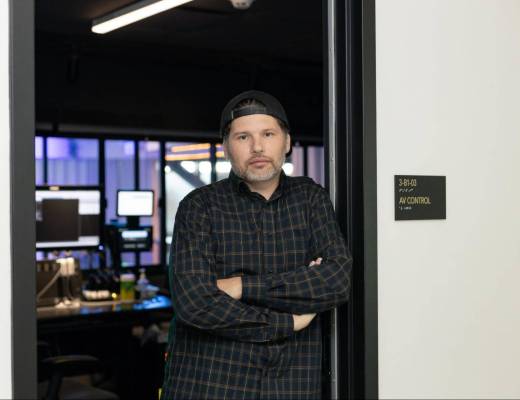With all the uncertainty in the world right now, many people are asking me where they should put their money. Should they buy gold? Silver? Is the dollar in trouble? After four decades in this field, I’ve developed some strong opinions about what’s coming.
I believe we’re in a currency crisis that’s rolling along slowly. Three words I use in almost every interview: all fiat fails. We’re in a global fiat currency system based primarily on the US dollar, and if it fails, basically everything else does too.
But what does failure actually mean? In a financial crisis, all the real wealth stays in place. The real estate, agriculture, oil fields, schools, and buildings remain. What changes is ownership. There’s a huge shift as assets get repriced.
Two Potential Paths Forward
We have two general paths ahead. One is a debt-liquidating depression where overleveraged assets come down in price. For example, instead of an average house costing $440,000, it might drop to $220,000. The house doesn’t disappear, but people who are overleveraged may lose their assets while those with cash can buy them up.
The other path is a hyperinflationary depression where the currency becomes worthless. I don’t think this will happen with the US dollar. More likely, we’ll see some combination where leveraged assets come down in price while necessities like agricultural commodities go up because we all need to eat.
This creates a situation where things we need cost more, while leveraged assets like car loans, student loans, real estate, and stocks (with $1 trillion currently on margin) come down. It’s a repricing – mother nature resettling things on a more realistic scale.
Real Assets vs. Paper Assets
In this environment, real assets maintain value while paper assets often don’t. Most people think gold and silver are “dead assets” because they just sit in a vault collecting dust. But there are ways to make these precious metals work for you.
Looking at the compounded annual growth rate over 25 years:
- Gold: approximately 10%
- S&P 500: about 8%
- Real estate: roughly 5%
I preach balance. Consider putting about 10% of your portfolio in precious metals, divided between physical metal and equity in top-tier, cash-flowing companies that provide dividends. The remaining 90% can go into real estate, stocks, bonds, private equity, or whatever makes sense for your situation.
The Coming Digital Transition
The current monetary system will end. Bankers know it, and they’re looking for an exit. That exit is likely a digital currency system. Everything is going to be tokenized – that’s their plan. We’re moving toward a new system much like what we have now, except it’ll probably go cashless.
You’ll have to move from the platform you’re used to using now into a tokenized system. At the beginning, there will probably be competing tokens – an Amazon token, a JP Morgan token, etc. – but they’ll all be cleared the same way. Eventually, it will likely narrow down to one universal token, similar to stablecoins like USDC or USDT.
This transition is already being planned. How easily we’ll make it through remains to be determined, but we’re being conditioned with facts and propaganda about safety and digital ID. The system is moving into an almost sci-fi world very soon – I think we’re about two years away.
Implementation will probably require a crisis – maybe a cyber attack on the banking system or a blackout. They’ll come up with an alternative that promises to secure your financial future, with incentives to adopt quickly and penalties for those who delay.
Protecting Yourself in Uncertain Times
You need hard assets in a financial readjustment. This includes:
- Real estate (preferably without leverage)
- Gold and silver
- Select cryptocurrencies
- Any hard asset that doesn’t rot and stores value
Also consider what will be needed in the transition ahead. While AI may take many jobs, trades like plumbing, electrical work, and mechanics will flourish. Self-sufficiency is becoming more important – basic home repair skills, perhaps growing an herb garden. We need to become less dependent on technology and more dependent on humanity.
My mission is to teach and empower people to understand the benefits of an honest financial system. The dollar’s “inordinate privilege” of allowing us to print money and pass inflation to other countries while they send us real goods in exchange for paper is coming to an end.
When you have control over your money, you have much more freedom than if someone else controls it. The system being proposed gives them more control. What we want – what we need – is freedom.
Frequently Asked Questions
Q: How much of my portfolio should I allocate to precious metals?
I recommend about 10% of your portfolio be in precious metals, divided between physical metal and equity in top-tier mining companies that provide dividends. The remaining 90% can be distributed across real estate, stocks, bonds, and other investments based on your personal situation and goals.
Q: Is the US dollar going to collapse completely?
I don’t believe the US dollar will experience a Zimbabwe-style hyperinflation where it becomes completely worthless. More likely, we’ll see a combination where some assets decrease in value while necessities increase in price. The dollar will likely be replaced as the world’s reserve currency through a transition to a digital system, but this will be a process rather than an overnight collapse.
Q: When do you expect the transition to a digital currency system to happen?
I believe we’re about two years away from seeing significant movement toward a digital currency system. Implementation will likely follow some type of crisis, such as a cyber attack on the banking system, which will be used to justify the rapid adoption of a new digital financial framework.
Q: What skills will be valuable in the economic transition ahead?
Practical trades like plumbing, electrical work, and mechanics will remain valuable even as AI takes over many other jobs. Self-sufficiency skills including basic home repair, food production, and general handiness will become increasingly important. The ability to adapt quickly to changing circumstances and maintain independence from centralized systems will be particularly valuable.






